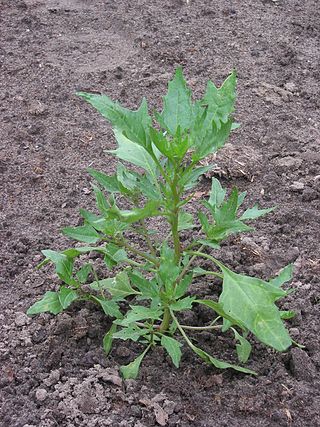
Oxybasis rubra, common names red goosefoot or coastblite goosefoot, is a member of the genus Oxybasis, a segregate of Chenopodium. It is native to North America and Eurasia. It is an annual plant.
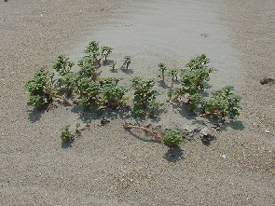
Amaranthus pumilus, the seaside amaranth or seabeach amaranth, is a species of amaranth. This annual plant is now a threatened species, although it was formerly scattered along the eastern coast of the United States, its native range.

Aristida oligantha is a species of grass known by the common names prairie threeawn and oldfield threeawn.
Puccinellia pumila is a species of grass known by the common names dwarf akaligrass and smooth alkali grass. It is native to North America where it grows along the coastline in the northern latitudes, from Alaska across Arctic northern Canada to Greenland. It occurs on the coast of the Pacific Northwest in the United States and it is known from the Kamchatka Peninsula. The grass is only found on the coast, in wetland habitat, beaches, and areas inundated by the highest tides, in saline sand and mud. This perennial grass grows decumbent or erect to a maximum height near 40 centimeters, often remaining much smaller, especially in harsh habitat. It may root at stem nodes which become buried in wet substrate. The inflorescence is a dense or open array of branches bearing spikelets.
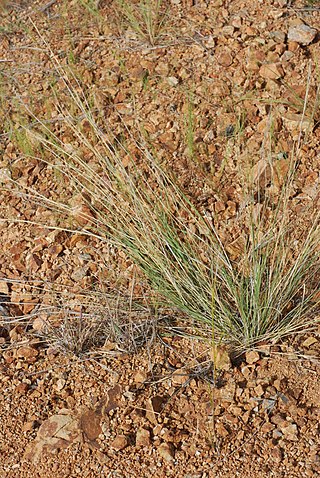
Aristida chaseae is a rare species of grass known by the common name Chase's threeawn. It is endemic to Puerto Rico, where it is known from two locations in the Cabo Rojo National Wildlife Refuge and the Sierra Bermeja. It is a federally listed endangered species of the United States. It cannot compete with introduced species of grasses, such as Brachiaria subquadripara, which are invading its habitat.

Aristida purpurascens is a species of grass known by the common name arrowfeather threeawn. It is native to eastern North America. One of the three varieties has a distribution extending south into Honduras.

Carex cumulata, common names clustered sedge, piled sedge, and piled-up sedge is a species of Carex native to North America. It is a perennial.

Viola hirsutula, common name southern woodland violet, is a perennial species of violet found in the eastern United States.

Aristida longespica is a species of grass known by the common name slimspike threeawn. Aristida longespica var. geniculata is listed as a species of special concern in the State of Connecticut.

Atriplex glabriuscula, common names Scotland orache, smooth orache, Babington's orache or seaside orach is an Atriplex species native to North America and northern Europe. It is an annual.
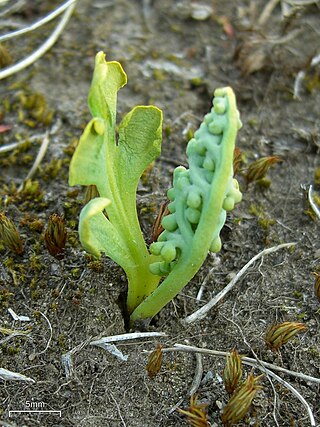
Botrychium simplex, the little grapefern, is a species of fern in the family Ophioglossaceae that is native to North America and Greenland. It is a perennial.

Draba reptans, common names Carolina draba, Carolina whitlow-grass, Creeping whitlow-grass, and Whitlow-grass, is an annual plant in the family Brassicaceae that is native to North America.

Paronychia fastigiata, common names hairy forked chickweed, hairy forked nailwort, and forked chickweed, is an annual plant native to North America.
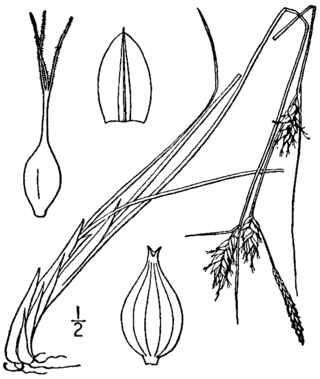
Carex oligosperma, common name fewseed sedge, few-seeded sedge, and few-fruited sedge, is a perennial plant in the Carex genus. A distinct variety, Carex oligosperma var. oligosperma, exists.

Carex polymorpha common names variable sedge and many forms sedge, is a perennial species of Carex native to North America.

Carex prairea, common name prairie sedge, is a species of Carex native to North America. It is a perennial.
Croton michauxii, commonly known as elliptical rushfoil, and Michaux's croton, is a plant species in the family Euphorbiaceae that is native to the United States. It is an annual plant.
Potamogeton ogdenii, common name Ogden's pondweed, is a perennial plant native to North America.
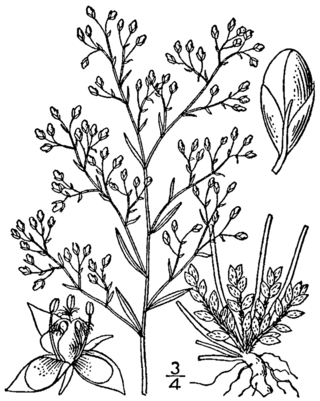
Lechea racemulosa, common name Illinois pinweed, is a perennial plant native to the United States.
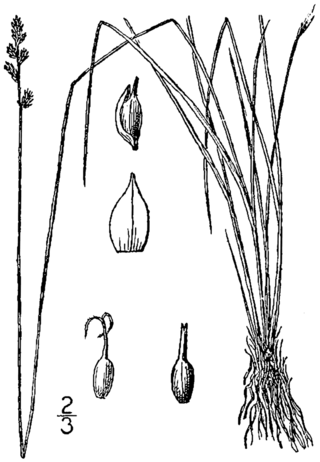
Carex sterilis, common names dioecious sedge, sterile sedge and Atlantic sedge, is a perennial plant native to North America.

















